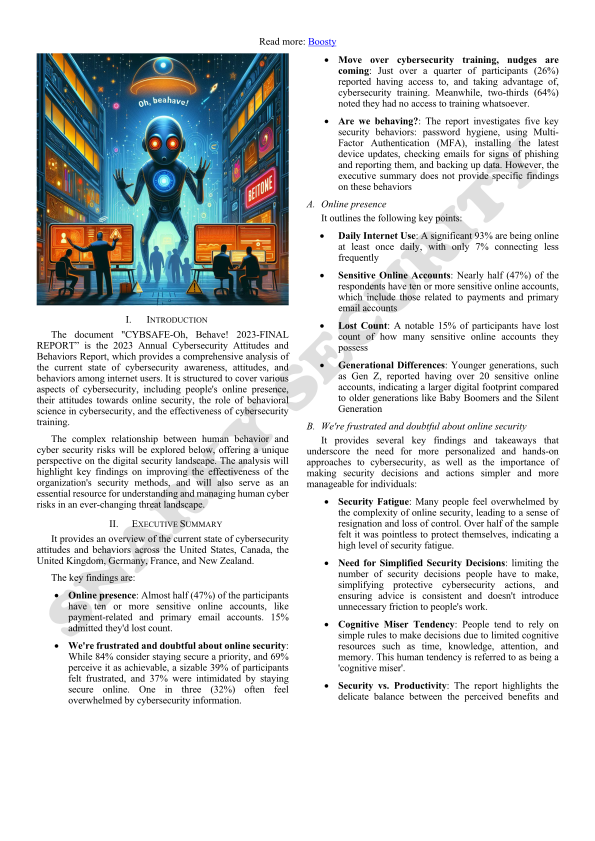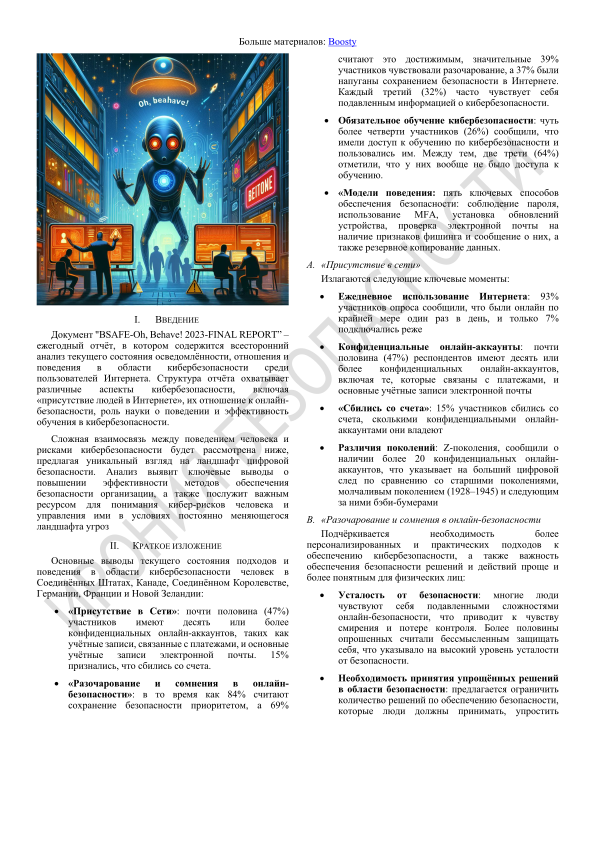[Announcement] The Art of Alienating Your Audience. A Guide 'Who Needs Customers, Anyway' to Failing in Cyber security Marketing

Welcome, aspiring marketing maestros, to the ultimate guide on how to alienate your audience and tank your cybersecurity business! Are you tired of actually connecting with potential customers and generating quality leads? Do you yearn for the sweet sound of unsubscribe clicks and the satisfying ping of your emails landing directly in spam folders? Well, buckle up, because you’re in for a treat!
In this comprehensive masterclass of marketing mayhem, we’ll explore the fine art of annoying your prospects, confusing your sales team, and generally making a mess of your cybersecurity marketing efforts. From bombarding inboxes with irrelevant mass emails to creating lead generation forms so lengthy they’d make War and Peace look like a tweet, we’ve got all the tips and tricks you need to ensure your marketing strategy is as effective as a chocolate teapot.
📌The Complexities of Cybersecurity Marketing: Cybersecurity marketing is a nuanced and challenging field, requiring a deep understanding of both the technical aspects of cybersecurity and the intricacies of marketing. But who needs to understand their target audience when you can just blast generic messages to everyone? After all, why bother with personalized content when you can just send the same email to a financial director, a CISO, and a CEO and hope for the best?
📌The Frustration with Lead Generation Forms: Ah, the ubiquitous lead generation form. You find an interesting piece of content, click to download it, and are immediately redirected to a form with a dozen fields to fill out. This practice is driven by the need to generate leads, but it often results in collecting useless data. Many users resort to using autofill features with outdated or incorrect information just to bypass these forms. This leads to a cycle where marketers gather irrelevant data, users unsubscribe from spam emails, and the quality of leads remains poor. But hey, who needs accurate data when you can have a bloated CRM full of irrelevant contacts?
📌Ineffective Mass Email Campaigns & the Misguided Focus on Lead Quantity: Mass email campaigns are another area where cybersecurity marketing often falls short. Sending out thousands of generic emails asking if recipients have cybersecurity issues and offering solutions without considering the recipient’s industry or role is ineffective. Financial directors, CISOs, and CEOs have different concerns and require tailored messaging. Yet, marketers often focus on the quantity of emails sent rather than the quality of engagement. Because nothing says «we care» like a one-size-fits-all email blast, right?
📌The Disconnect Between Marketing and Sales: Marketing in the cybersecurity sector is supposed to build a positive brand image, enhance customer loyalty, and support the sales process. However, the current approach often leads to customer irritation. In the B2B segment, most sales are made through direct contact with decision-makers, not through impulsive purchases driven by advertisements. Therefore, the primary goal of marketing should be to assist in the sales process by understanding customer pain points, providing solutions, and addressing objections. But why bother with alignment when you can have marketing and sales teams working in silos, each blissfully unaware of the other’s strategies and challenges?
📌Bridging the Gap Between Sales and Marketing: The disconnect between sales and marketing teams in the cybersecurity industry can significantly hinder the effectiveness of both functions. This misalignment often results in wasted resources, missed opportunities, and a lack of cohesive strategy. But who needs a cohesive strategy when you can just blame the other team for your failures?
So, grab your «Cybersecurity for Dummies» book, dust off that decade-old email list, and prepare to learn how to fail spectacularly in the high-stakes world of cybersecurity marketing. After all, who needs customers when you can have a perfectly polished strategy for driving them away? Let’s dive in and discover the true meaning of «security through obscurity» — by making your marketing so obscure, no one will ever find you!
















